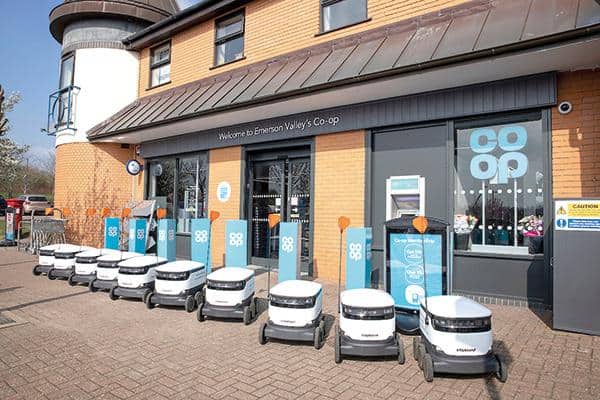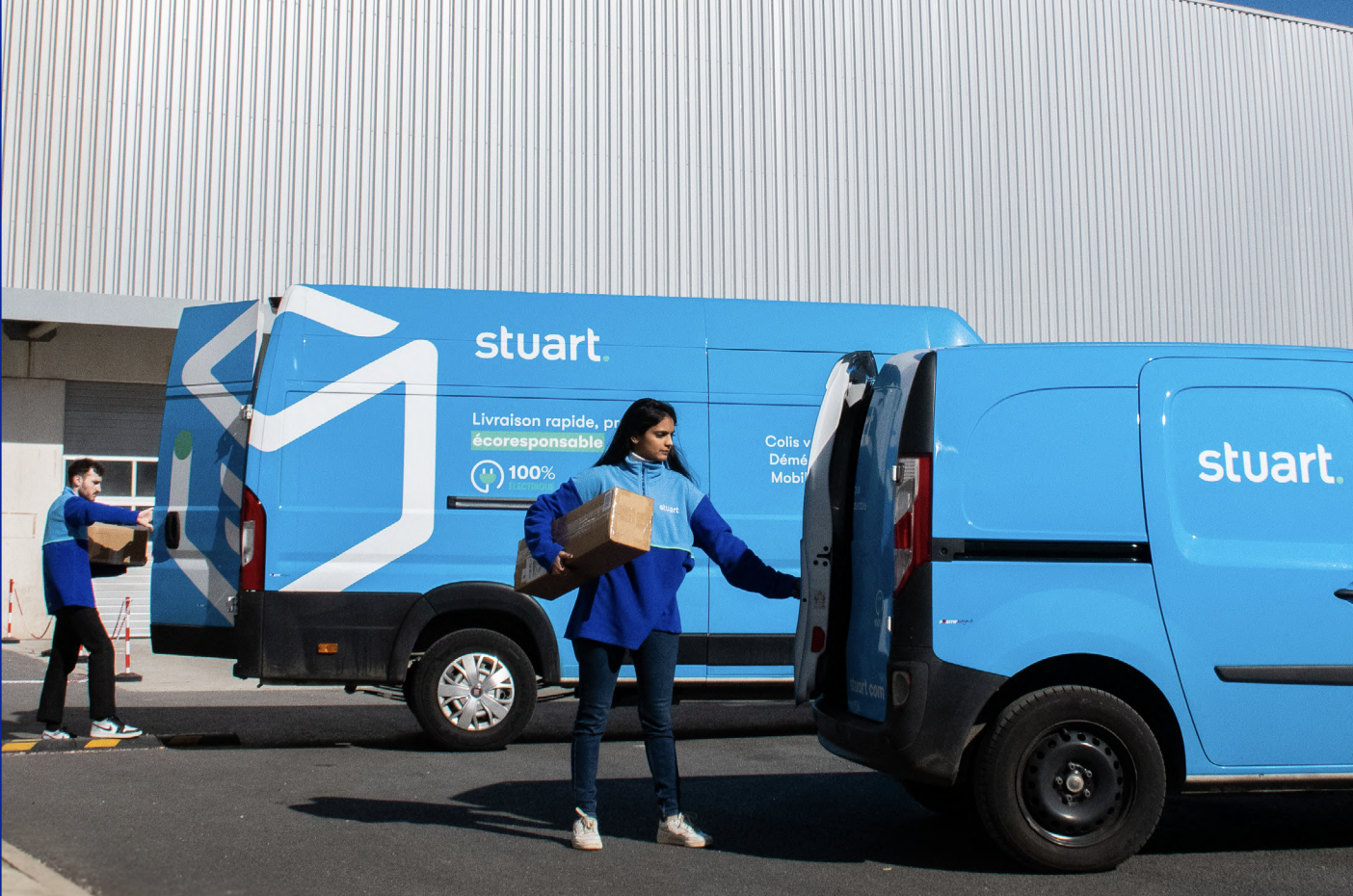The Co-op today says hundreds of its local convenience stores are now supplying groceries for online delivery to customers’ homes after a pandemic year in which its ecommerce business expanded significantly – via an array of delivery partners.
In total, 800 Co-op Food shops are now fulfilling orders for delivery. Food can be ordered online from the Co-op’s own website or via the apps of delivery partners including Pinga, Buymie, Deliveroo and robotic delivery company Starship Technologies.
As recently as September, the retailer said it was targeting same-day delivery from more than 650 UK shops in 2020 – a target that it is now well beyond. In its results today, the Co-op says it is looking to respond to the changing needs of customers, which, it says, are selected in hyper-localism and in moves towards digitising all of its businesses.
The figures came as the Co-op today reported revenue of £11.5bn in the year to January 2 2021, up from £10.9bn a year earlier. Pre-tax profits came in at £127m, up from £24m a year earlier –although profits after tax from continuing operations – excluding its health business, whose sale to Phoenix UK Group was announced in March – came in at £72m, up from £49m in 2019, following a tax charge of £55m.
Online food strategy
Food sales of £7.8bn were 3.5% ahead of last time, thanks to both online and wholesale growth. Food sales include £1.6m from supplying stores including hundreds of Nisa stores on a wholesale basis.
The Co-op’s own grocery business benefited as customers turned online and to local shops to buy during the pandemic – and as they stayed at home to work. The Co-op says that its retail business transformation programme has underpinned its response, bringing in new technology to support the range and availability of stock, as well as forecasting information and liaising with suppliers through a cloud-based collaboration portal, Co-op Connect. That helped to support the fulfilment of online orders for delivery in as little as 30 minutes.
The biggest growth of the lockdown period was in April 2020 (+42% on a year earlier) as shoppers – including 2.4m new customers – avoided supermarket queues and stayed close to home. The Co-op’s market share peaked at 7.4% in April – the highest for years – and up from an average market share of 6.3% in 2019. Its market share fell back to 6% by the end of the financial year.
During the year, the Co-op itself opened 56 new food shops, extended 13 and refitted 105. It also supported FareShare to distribute five million meals, supported Marcus Rashford’s campaign to extend free school meals during the pandemic and provided £3.1m in food vouchers and technology equipment to 6,000 pupils at the academies that it is involved in running.
Steve Murrells, chief executive of the Co-op, says: “In 2020 we lived through a perfect storm, with every part of our lives turned upside down – socially and economically, mentally and physically. Along the way we discovered much about our society, some of it brilliant and inspiring, and some of it quite ugly thanks to the unfairness and inequality Covid-19 has revealed and exacerbated.
“During the last few years, we’ve created a business that is truly focused on delivering clear value and benefits for our members, customers and their communities. All that work proved to be essential in giving us the ability to respond to the immediate and sustained demands which the pandemic brought with it. Our Vision, Co-operating for a Fairer World, was our guiding light throughout, and our response to Covid-19 demonstrated the power of co-operative enterprise and the relevance of co-operative values.”
Co-op Food is the Co-op’s largest business, by sales. But the wider group also includes funeral care, insurance and legal services businesses, as well as its recently re-launched business-to-business Co-op Power business.
The Co-op said its funerals business arranged more than 10,000 – or 11.4% – more funerals than in 2019, reflecting the excess deaths caused by Covid-19. Revenue in its funerals business came in at £272m, flat compared to the previous year since only basic arrangements were possible.










